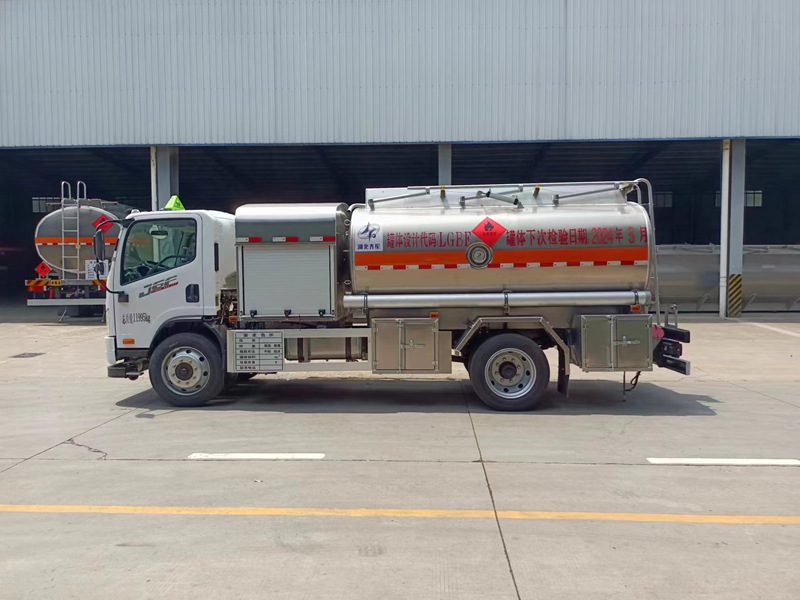Localized Manufacturing: Empowering Emerging Economies
Emerging markets are increasingly investing in localized oil tanker manufacturing, reducing reliance on imported vehicles and creating jobs. In India,Oil tanker truck for sale a homegrown manufacturer has developed a low-cost, lightweight oil tanker truck tailored to the country’s narrow rural roads. The trucks, which cost 30% less than imported models, feature compact designs and durable engines Oil tanker truck for sale that can handle rough terrain. Since 2021, over 500 of these localized tankers have been deployed across rural Punjab and Maharashtra, improving fuel access for farmers and small businesses Oil tanker truck for sale .
In Kenya, a joint venture between a local automaker and a European engineering firm is producing oil tanker trucks with modular components. These components—such as interchangeable tank sections and easy-to-repair engines—are sourced locally, making maintenance more affordable for small-scale operators. The initiative has created 200 jobs in manufacturing and repair, while also reducing Oil tanker truck for sale the country’s dependence on foreign-made tankers. “ Hazardous material tanker Local manufacturing isn’t just about cost—it’s about building a self-sustaining energy logistics ecosystem,” says an industry representative Oil tanker truck for sale.

Tech-Driven Fuel Quality Control
Ensuring fuel quality is a top priority for oil tanker operators, and new technologies are making monitoring easier and more accurate. In Singapore, oil tanker trucks are fitted with real-time fuel quality sensors that measure parameters like viscosity, water content,Diesel tanker and purity during transport. If contaminants are detected, the system alerts operators immediately,Hazardous material tanker preventing the delivery of substandard fuel to gas stations. This technology has reduced fuel-related complaints from Oil tanker truck for sale customers by 42% in the city-state.
In Brazil, oil tanker trucks use blockchain technology to track fuel quality from refinery to delivery. Each truck is equipped with a digital ledger that records every step of the journey, Diesel tanker including fuel testing results at the refinery and during loading. Hazardous material tanker Gas station owners and regulators can access this ledger to verify fuel quality, Diesel tanker reducing the risk of adulteration—a common problem in the country’s fuel market. “Blockchain gives us transparency we never had before,”Diesel tanker Hazardous material tanker says a Brazilian fuel regulator. “It holds everyone accountable forHazardous material tanker delivering clean, high-quality fuel.”
Driver Well-Being: Prioritizing Safety and Comfort
As oil tanker trucks become more advanced, manufacturers are also focusing on improving driver comfort and safety. In Europe, new tanker models feature ergonomic seats with lumbar support and climate control,Diesel tanker reducing driver fatigue during long hauls. Diesel tanker The cabs are also soundproofed to minimize noise from the engine and road, creating a more comfortable working environment.Diesel tanker A study by a German logistics firm found that drivers using these upgraded trucks reported a 35% reduction in back pain and fatigue Diesel tanker.
In the United States, oil tanker trucks are equipped with in-cab safety alerts that remind drivers to take regular breaks and monitor their heart rate via a wearable device. Diesel tanker If the device detects signs of stress or exhaustion, it triggers an alert, prompting the driver to pull over.Diesel tanker This system has reduced accidents caused by drowsy driving by 28% in fleets that have adopted it. “Drivers are the backbone of our operations,” says a U.S. fleet manager. “Investing in their well-being isn’t just ethical—it’s good for business.”

